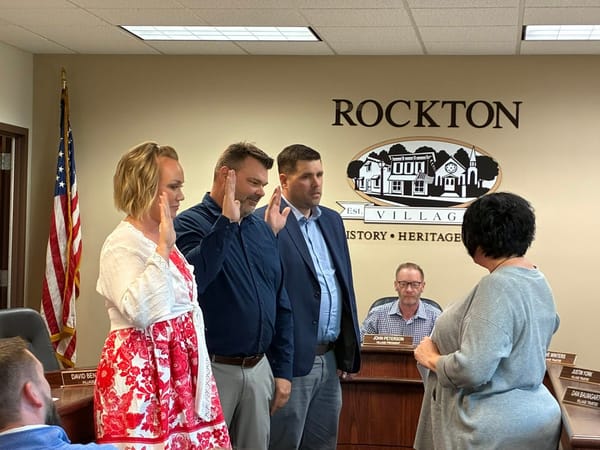The EPA found metals in Rockton water in 2004, but not enough to keep testing for them.
As of 2004, the EPA detected high levels of VOCs but low levels of metals.

Before the Chemtool fire, Rockton groundwater contained some heavy metals, according to a 2004 report from the EPA. But since they "were generally below drinking water standards," EPA testing and remediation focused on volatile organic compounds (VOCs) and stopped testing for metals. The EPA said the contamination was caused by the Beloit Corporation, whose facility was declared a Superfund site in 1990. The Beloit Corp. installed a groundwater pump-and-treat system in 1996 to remove VOCs. The Illinois EPA began operating the system in 2002 after the Beloit Corporation filed for bankruptcy in 1999. Chemtool bought the property in 2008.
In late June 2021 when the Chemtool fire was put out, the EPA tested again for a wide range of contaminants and they didn't find any significant VOCs, so they must have been doing something right. But they found "elevated metals, including antimony, cadmium, chromium, and nickel, in groundwater monitoring wells" that had been drilled for testing, probably back in the 1980s.
The main concern, then and now, was the Blackhawk Acres subdivision, east of the Superfund site. The Illinois EPA and the Winnebago County Health Department have strongly advised residents not to drink water from private wells until test results are available. In 1997, the EPA found ten private wells potentially at risk of VOCs, but the Winnebago County Health Department isn't sure how many private wells might be affected now. By now, they say, everyone in the subdivision should be connected to the Rockton municipal water supply, where no contaminants have been detected.
Roscoe News asked the EPA how long these heavy metals have been there and why hadn't they been testing for them. Rachel Bassler, Public Affairs Officer at the U.S. EPA, sent a statement to Roscoe News on July 27:
"U.S. EPA is aware of recent reports of elevated metals in Beloit Corp. site monitoring wells. U.S. EPA will be working in collaboration with Illinois EPA to assess the impacts from the ChemTool explosion and fire on the site-related extent of contamination and site groundwater remedy and to determine what additional cleanup actions, if any, are necessary. The Record of Decision (ROD) for the Beloit Corp. Superfund site was issued by IEPA and U.S. EPA in 2004."
The statement continues, "The [2004] ROD noted that although metals such as cadmium and zinc were found in groundwater monitoring well samples during the site remedial investigation, they were generally below drinking water standards and were not considered to be contaminants of concern. The contaminants of concern for cleanup at the Beloit site were volatile and semi-volatile organic compounds (VOCs and SVOCs) used in parts manufacturing. The 2004 ROD required a groundwater pump & treat system, which IEPA has been operating since 2002."
For continuing coverage and free local news updates by email each morning, subscribe to Roscoe News.
You can download the 132 page Record of Decision from 2004: Beloit Corporation lEPAID: L 2010355004 USEPA: ILD 021440375 Rockton, Illinois from https://semspub.epa.gov/work/05/441480.pdf (12.1 MB).
The document includes test results, a history of communication and reports about the public comments submitted by residents before and during a April 7, 2004 public hearing at the Hononegah Performing Arts Centre held to explain the proposed plan and the altematives. Documents about the Superfund site were also deposited at the Talcott Free Library in Rockton.
According to the 2004 Record of Decision, the Illinois EPA installed point-of-entry carbon filtration units in 1993 in four Blackhawk Acres residences with private wells containing VOCs, mostly on Watts Avenue.
The 2004 document says, "In 1997, the Village identified 10 addresses with private wells potentially downgradient of groundwater containing VOCs (i.e., residences or commercial properties not using the municipal supply). One of these private wells was found to have VOCs slightly exceeding MCLs [Maximum Contaminant Levels] and Illinois Class I groundwater standards. This residence was subsequently connected to the Village mimicipal water supply at the Beloit Corporation's expense. The other nine addresses continue to use their private wells, since the plumes (based on annual groundwater tests conducted by the Illinois EPA have not impacted them.
Another polluter, the former Soterion facility, was located at the southern edge of the Blackhawk Acres subdivision.





